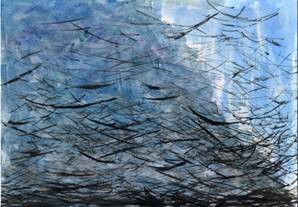|
For Professionals We have provided Art Therapy to a range of services across the London area since 2008, including Camden PCT and local boroughs of Islington, Camden, Merton and Waltham Forest. Our services can be contracted with an individual Art Therapist or by contracting a number of Art Therapists for larger service provision, for example, working across a number of locations and client groups. For our different projects, we have received funding from:
You can find information about the benefits of Art Therapy with specific client groups by clicking the green buttons to the left. Art Therapy in Practice In Art Therapy (also known as Art Psychotherapy), image making plays a central role in the therapeutic relationship. Images are used as the primary form of communication; the materials provide a way for the person to express their thoughts and feelings through the images they make. The underlying expressions in the work are more important than the technical ability to draw. Art Therapy is not dependent on spoken language and can therefore be helpful to anyone who finds it difficult to express their thoughts and feelings verbally, or speaks English as their second language. Art can be used as a type of symbolic speech. Expressing feelings and experiences through images can often be a more powerful communication than words. By putting difficult feelings onto paper, into clay or another chosen medium, in the presence of the Art Therapist, they can be made less threatening. The Art Therapist and client are in partnership, working together to understand the meaning of the image and the process of making. The artwork provides a focus for discussion, analysis and self-evaluation and acts as a record of the psychotherapeutic process. Art Therapy can play a role in assessing the progression or deterioration of clients, both physically and mentally, liaising with staff and other key professionals involved in client care. Art Therapy can be provided in the following formats: Individual Art Therapy Individual Art Therapy can be offered as long or short-term interventions to those who may have primary struggles with social situations. The emphasis is on the triangular relationship between client, therapist and the image. Emotions can be intensely expressed and contained within this close therapeutic relationship. Group Art Therapy Group Art Therapy uses the group analytic and group interactive models. The groups are non-directive, relying on emergent themes within the sessions and how these themes resonate between members. Groups last 60-90 minutes at the same time each week and in the same room, providing a confidential space for individuals to make images and share their difficulties. Workshops To give clients a chance to experience a taster of Art Therapy, general themes are used to experience ways that colour, texture and materials can contain or express feelings. Workshops can include staff members who wish to find out more about Art Therapy. No psychoanalytic work occurs in a workshop however the experience will act to inform clients about how they might make use of regular group or individual Art Therapy. HCPC Registration Art Therapy is a state registered profession. In order to practice anywhere in the Please contact us if you would like to discuss any particular needs. |

